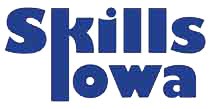They use these steps: Theory, Demonstration, Practice, and Coaching. These are all solid parts of raising achievement, but it is important to note where the achievement numbers reach the point of transference to increased achievement.
Study of the theory behind a concept is important. The inquisitive in the room will always want to know why something works the way it does. The transfer of studying the theory to the student's achievement however is 0%. That probably doesn't really surprise anyone. If we only talk about something, it doesn't usually stick with kids.
So what happens when we use demonstrations of the concept. Our classes get to see what happens, they can watch the phenomena in action. The difference this makes in achievement? Once again, Joyce and Showers indicate that this is still 0%. Once students understand the concept, the demonstration might come back to them, but by itself, it doesn't make the difference in achievement that we are after.
Practice makes perfect is something that we have all grown up with, and surely it must be right, but Joyce and Showers' research shows disappointing results on this one as well. Practice on its own only leads to making a 5% difference in achievement. This is where jaws usually drop. "Really? Only 5%?" Thinking about it makes sense however. Imperfect practice leads to imperfect results. How is a student to know what parts of the practice are incorrect?
The really good news here is that coaching does make a huge difference. Coaching has a 95% transference to increasing achievement. Teachers probably do this without really thinking about it. Showing a student where his/her math work went wrong, or helping a student edit an awkwardly worded passage are both examples of coaching. The truth of this is that effective teachers are coaching all of the time. ALL of the four steps are important parts of the teaching process, but finishing the job is what makes the difference. We must coach the kids through the process.
So, what are the implications of Joyce and Showers work for working with Skills Iowa? What steps do we need to use to increase student achievement? In short, all of them. We can't expect that giving assessments will lead to increased achievement unless we are running the reports and acting upon them, and we cannot expect that giving Skills Tutor lessons will replace the importance of an effective, highly qualified teacher. What we can know is that the opportunity for practice that is offered through Skills Tutor is part of the process, and we also know that the results of Assessment Center help the teacher target which parts of a unit of study have already been mastered and which parts will need more study.
The tools offered in Skills Iowa are parts of the process. Of course there are many other tools that effective teachers can use to accomplish the same end. The point is that we must understand the effectiveness of the practices we are using. All good teachers work hard; if we are to increase achievement, we must also consider what the research says about increasing achievement.

No comments:
Post a Comment